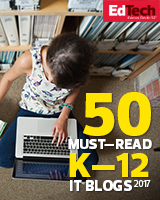End of the year – Student evaluations and self-reflection
 Really? The end of the year? Weren’t we just shoveling snow?
Really? The end of the year? Weren’t we just shoveling snow?
I guess it is May. And you know what that means . . . yup, student evaluations. You know . . . having students evaluate you and your teaching over the last nine months.
I never really thought much about having my students complete evaluations during my first couple of years teaching. It was obvious, even to a rookie teacher, what needed to change. Plus, it just wasn’t done. I mean, who asks for the opinions of school children?
I would always spend time reflecting at the end of the year:
- What went well?
- What went wrong?
- Were my assessments valid?
- Did I handle classroom management issues effectively?
- What content should I add / eliminate for next year?
- Do I need to adjust my rubrics?
But it was only one point of reference. And we know how incomplete administrative evaluation can sometimes be. Some excellent mentors eventually convinced me that feedback from my customers would be a good idea, that a good student evaluation can help in my reflective process.
So I started talking more with my kids, both informally throughout the year and formally at the end. Questions about the classroom environment and arrangement, did I provide enough time for projects, how well did I respond to student questions, did I create a friendly learning climate, what strategies and activities worked best, what sort of communication works best, more or less technology and what they liked / disliked in general.
Students should feel free to put their name on the evaluation or complete it anonymously. And while you’ll need to take the information with a grain of salt. you also get some great feedback and insightful comments.
I’ve attached a quick sample. Feel free to adapt it for content and age levels.
Teacher Evaluation by Students
Reflect away.

















I’ve enjoyed reading your blogs and utilizing the resources that you include. I also agree that teachers need to know where they stand when it comes to their teaching style, classroom management and rapport with their students. However, I wonder how do you weed out negative criticism/complaining as oppose to objective criticism (that maybe negative) from your students? How have your student evaluations been beneficial to your teaching? I teach high school US history (9th grade) and most of my students just want to have fun and have time off from doing their assignments. Therefore I get comments like we take too many notes or have too much homework. The classroom management and rapport piece I usually get prety high marks but they constantly complain about their assingments even the ones the majority of them like.
Valerie,
I agree. Not every comment will be useful in the sense of improving my teaching skills. But I think, just by asking for their opinion, the evaluation serves the purpose of improving the relationship between yourself and your students. I eventually began asking for feedback throughout the school year – mostly informally but that created an atmosphere in which a more formal end-of-the-year survey is taken more seriously by the students.
But you will always have comments about too much work – these are teenagers, after all! But I like the questions on the evaluation that I attached because many of the questions don’t specifically deal with assignments. They ask about the teacher’s ability to grade fairly, provide feedback and whether or not the teacher’s expectations and directions are clear. I’m less concerned whether they enjoyed the assignment and more concerned whether that understood what I wanted and why I wanted it.
Those are the kinds of things that I began to ask – basically, am I organized enough so that I’m not wasting students’ time. And the bottom line is that student evaluations are just one piece of data I can use as I reflect on my teaching.
Thanks for the comment!
glennw
I like the form you use and will add some of those questions to what I am already using. I do like to ask their opinions of certain projects we do in class, especially if it is something new I tried. I ask if they think they learned from the project and also have a place to check if they think the project should be done next year. That tells me a lot about whether it was effective.
I used to worry about evaluations and hesitate, but I read that the best and most successful teachers aren’t afraid of feedback and frequently solicit it from students and teachers. So I tried it. Sometimes it hurt, and sometimes the comments were flaky, inaccurate, or just plain unfair. But I also learned things I couldn’t have learned any other way. I truly believe I didn’t really start improving as a teacher until I summoned up the courage to start asking my students what they thought. It’s hard but extremely valuable, in my opinion.
I’ve always argued that learning / school is a shared experience and that student evaluations are a part of that. It is difficult at times but, you’re right, it can also be incredibly powerful.
Thanks for sharing!
glennw
Hi Glenn – though it is now almost May, 2012, your form and comments are very helpful – especially since I went looking specifically for a form I could use with my students at the end of the year. One thing I have noticed is that if I am asking things like this all year students are apt to be more fair on the year-end one!
I did Interactive Student Notebooks with 4 of my 6 classes this year. 2 9th grade World History, and 2 10th grade US-1914. We did these for one chapter (WH), and for the Constitution (US). Along with their project ending test and a “self-evaluation rubric,” I also asked them questions about whether or not they liked the ISN’s as a learning method, what was most effective for them, which Left Side activity they liked/learned from the most, etc.Whenever I do evaluations like this I tell my students that I VALUE honesty, and don’t value “smoke-blowing”! 90% of my students were fair and I think honest. A couple of “unfair” or bogus comments revolved around “too much work, not enough time” but these were from students who spent MOST of their class/work time talking and goofing off. Though I take “unfair” comments with a grain of salt, I DO consider them as part of the whole, and look at myself to see if I really DID provide enough time, especially for struggling learners.
I think when students see this kind of self-evaluative process in a teacher it creates rapport,respect, and gives more validity to comments the teacher might make to students about how the STUDENT can improve!
I enjoy your blog,when I remember to visit!
Rhonda
Rhonda,
I think you’re right when you say that asking for feedback all year long makes the end of the year evaluation more authentic and helpful. Because you’ve been doing it all along, your kids know that the end of the year eval is not just you doing because you have to do it.
Good luck! And you’re welcome to visit anytime! 😉
glennw